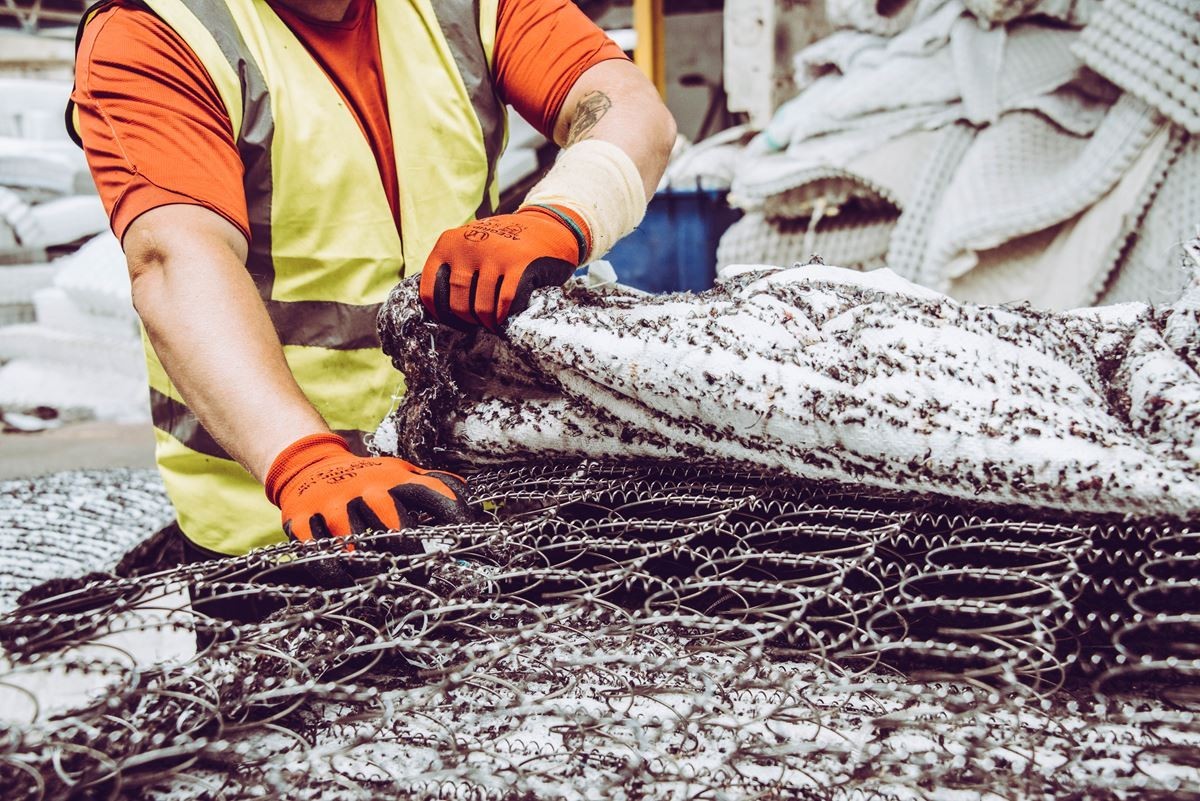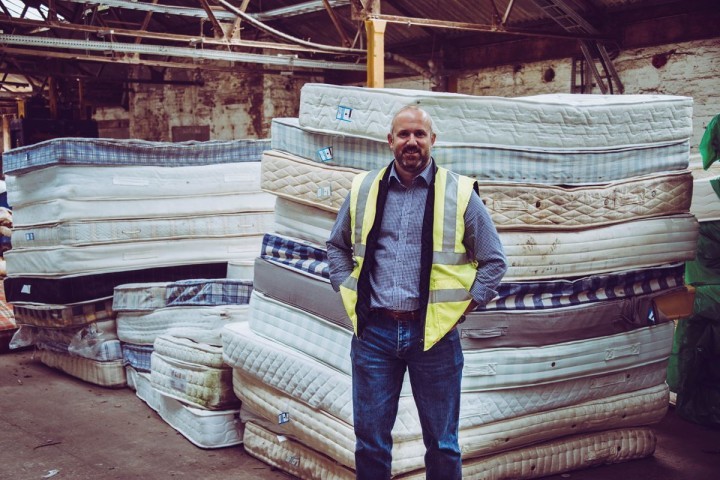Recycling and the green agenda is finally global news due to the plastic crisis, but just how much do UK consumers know about this vast and complicated issue?
A recent Which? Survey found that UK shoppers were hugely confused about the dizzying array of symbols used on product packaging, with over a quarter of people (27 per cent) unaware that the “mobius loop”, the three arrows made into a triangle, meant that the item could be recycled.
With a constant stream of conflicting news stories confusing the issue even further, UK consumers are often left in the dark about the best way to help the planet.
Recycling pioneer and head of The Furniture Recycling Group, Nick Oettinger, debunks some of the most common myths about recycling...
MYTH 1. “Recycled’ means ‘recyclable’
Although using recycled materials in products can be a good thing, including the word ‘recycled’ on product packaging can trick consumers into thinking they’re doing their bit to help the environment. However, in reality, just because an item has already been recycled once, or includes some recycled materials, it doesn’t necessarily mean it can be recycled again[1].
The most important thing we need to remember is that “recyclable” is far more important than “recycled”. In order to create a circular economy, products need to be designed and made with recycling and end of life in mind, so they can be recycled or repurposed again and again.
It’s clear that the UK’s complex recycling symbol system needs a re-think, but there are resources online for consumers to learn more about what products and packaging materials can be recycled after use.
MYTH 2. Plastic is the worst material for recycling
The plastic waste crisis is big news on the global agenda at the moment, and rightly so, but plastic isn’t always necessarily the worst suspect when it comes to recycling, as many plastic fibres can be made into new products.
All plastics are not the same. Materials such as PET and HDPE, which are used for plastic bottles, can be easily recycled and made into new bottles and containers, picnic tables, garden furniture and even insulation for sleeping bags and fleece jackets!
Many plastics are built to last and they don’t break down like other materials. This means that, if plastic materials are made to be economically recyclable (fully recyclable at end of life, and economically viable to do so) then they can be reused over and over again within the right recycling framework.
MYTH 3. England is a world leader when it comes to recycling
Although some areas of the UK - namely Wales - are highly commended for recycling rates, England lags behind in many respects.
According to figures from Defra, England’s household waste recycling rate is 45.2 per cent, with Wales way ahead at 57.6 per cent. Additionally, England’s reliance on landfill is soon to come to an abrupt end, with England’s landfill sites on plan to burst their banks by 2022[2] if nothing is done to stem the flow of waste being sent there.

MYTH 4. Recycling needs to start with the consumer
Although we need to take a collective approach to recycling, the core of the issue lies with product manufacture and design, and not the consumer.
If all products were designed and made with recyclability in mind, we could eliminate many of the issues associated with recycling, the landfill crisis and product disposal.
As a nation, we need to put more pressure on our manufacturers and retailers to make products fully recyclable, and also think about how they will capture their waste to recycle or reuse it. Years ago, some companies used to offer customers financial incentives to return bottles and other materials.
This is a much fairer and longer term solution, rather than relying on consumers with initiatives such as the latte levy and the 5p plastic bag tax.
MYTH 5. Recycling is standardised across the UK
In many ways, it is understandable that UK consumers would presume that recycling efforts were standardised across the country, but that is sadly not the case. A recent BBC study found that, although 99 per cent of councils collect and recycle detergent bottles, milk bottles and shampoo bottles, ten per cent collect plant pots and only ONE per cent collects expanded polystyrene packaging, such as takeaway containers.
It’s clear that UK consumers are confused about recycling, and it’s not surprising when the existing information and resources that are available are complex and sometimes even conflicting.
Although we all need to play our part in the education of the consumer, the majority of the issues lie with manufacturers and retailers, so UK industry needs to work together to build a joined up solution to create a circular economy, which is the only way to truly solve the impending recycling and waste crisis.
Additionally, as a nation, we need to offer greater transparency and adopt a widely recognisable circular economy stamp of approval for products and packaging - which would inform consumers that they are economically recyclable within the UK and offer greater transparency into.
Enjoyed this? Read more from Jam






















